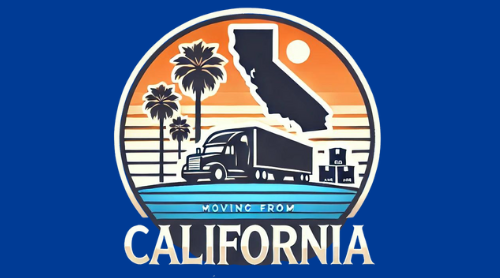Moving From California To Chicago
The Golden State's sun-kissed beaches and laid-back vibes have held you captive for years, but now you're ready for a change of pace. As you bid farewell to California's endless summers, you're trading in your flip-flops for snow boots and preparing to brave the Windy City's chill. Relocating to Chicago from California can be a jarring experience, but with its vibrant cultural scene, stunning architecture, and Midwestern charm, the Second City is sure to capture your heart. In this article, we'll guide you through the ins and outs of making a successful transition from California to Chicago.

Adjusting to the Midwest: A Guide to Moving from California to Chicago
Moving from California to Chicago can be a daunting task, especially considering the vast cultural and environmental differences between the two regions. As you prepare to make this significant change, it's essential to be aware of the various aspects that will affect your daily life.
Weathering the Storm: Adapting to Chicago's Climate
One of the most significant adjustments you'll need to make is getting used to Chicago's unpredictable climate. California is known for its sunny weather, but Chicago experiences four distinct seasons, with harsh winters and hot summers. Be prepared for: Cold winters with average temperatures ranging from 15°F to 30°F (-9°C to -1°C) Hot summers with average temperatures reaching up to 85°F (29°C) Frequent changes in weather patterns, with sudden shifts from sunny to rainy or snowy conditions
| Season | Average Temperature (°F) | Average Temperature (°C) |
|---|---|---|
| Winter | 20-30 | -7 to -1 |
| Spring | 40-50 | 4-10 |
| Summer | 70-85 | 21-29 |
| Fall | 50-60 | 10-16 |
Unlike California, Chicago has a comprehensive public transportation system, making it easy to get around the city without a car. You'll have access to: The 'L' Train: An elevated train system that covers most areas of the city Buses: An extensive network of buses that connect to the 'L' Train Ride-hailing services: Uber and Lyft operate in Chicago, providing an alternative to public transportation
Housing in Chicago: What to Expect
Finding the right place to live in Chicago can be challenging, especially considering the city's high demand for housing. Be prepared for: Higher rent prices compared to California, especially in popular neighborhoods A competitive market, with many people vying for the same apartments A wide range of neighborhoods to choose from, each with its unique character and amenities
Job Market and Career Opportunities in Chicago
Chicago is a hub for various industries, including finance, healthcare, and technology. You'll find: A strong job market, with many major companies having a presence in the city Opportunities for career growth and advancement A diverse range of industries, allowing you to find a career path that suits your skills and interests
Cultural Adjustments: Embracing the Midwest Lifestyle
Moving from California to Chicago also means adapting to a new cultural environment. Be prepared for: A slower pace of life, with a greater emphasis on community and family A strong sense of Midwestern hospitality, with friendly and welcoming locals A vibrant cultural scene, with many museums, theaters, and music venues to explore
How much does it cost to move from California to Chicago?

The cost of moving from California to Chicago can vary greatly depending on several factors, including the distance, weight, and type of items being moved, as well as the services required. On average, a cross-country move from California to Chicago can cost anywhere from $2,000 to $10,000 or more.
Estimating Moving Costs
To get a more accurate estimate of moving costs, it's essential to consider the following factors:
- Distance: The farther you move, the more you'll pay. The distance from California to Chicago is approximately 2,000 miles, which can increase moving costs.
- Weight: The heavier your load, the more you'll pay. Be sure to estimate the weight of your belongings accurately to get a precise quote.
- Services: Do you need packing services, storage, or special handling for fragile items? These services can add to the overall cost of your move.
Tips for Reducing Moving Costs
While moving can be expensive, there are ways to reduce costs without sacrificing quality. Here are some tips to consider:
- Pack yourself: Instead of hiring professional packers, consider doing it yourself to save money.
- Downsize: Reduce the weight and volume of your belongings by selling, donating, or storing items you no longer need.
- Choose the right mover: Research and compare moving companies to find the best rates and services.
Moving Options and Their Costs
There are several moving options to choose from, each with its own costs and benefits. Here are some popular options and their estimated costs:
- Full-service moving companies: These companies handle everything from packing to transporting your belongings. Estimated cost: $5,000 to $10,000 or more.
- Portable container moving: This option involves packing a container, which is then transported to your new location. Estimated cost: $2,000 to $5,000.
- Renting a moving truck: You pack and drive the truck yourself. Estimated cost: $1,000 to $3,000.
Is it cheaper to live in California or Chicago?

The cost of living in California versus Chicago is a common debate among those considering a move to either location. While both states have their unique advantages and disadvantages, the answer ultimately depends on various factors, including lifestyle, personal preferences, and priorities.
Cost of Housing
When it comes to housing, California is notoriously expensive, especially in cities like San Francisco and Los Angeles. The median home price in California is around $650,000, whereas the median home price in Chicago is around $240,000. Rent is also significantly higher in California, with the average rent for a one-bedroom apartment being around $2,400 per month compared to $1,800 per month in Chicago.
Taxes and Transportation
California has a higher state income tax rate, ranging from 9.3% to 13.3%, whereas Illinois, where Chicago is located, has a flat income tax rate of 4.95%. However, California does not have a state sales tax, whereas Illinois has a sales tax rate of 6.25%. When it comes to transportation, California has some of the highest gas taxes in the country, which can add to the overall cost of living. On the other hand, Chicago has a comprehensive public transportation system, making it easier to get around without a car.
Food and Lifestyle
The cost of food and lifestyle in California versus Chicago can vary greatly depending on personal preferences. California is known for its avocado toast and organic food scene, which can be expensive. However, Chicago has a more affordable food scene, with a large number of budget-friendly dining options. Here are some examples of how the cost of food and lifestyle can vary between the two locations:
- Avocado toast: California - $15-$20 per slice, Chicago - $8-$12 per slice
- Organic produce: California - 20%-30% more expensive than non-organic, Chicago - 10%-20% more expensive than non-organic
- Movie tickets: California - $15-$20 per ticket, Chicago - $10-$15 per ticket
Is it a good idea to move to Chicago?

Pros of Living in Chicago
Chicago is a world-class city that offers many benefits to its residents. Here are some of the advantages of living in Chicago:
- Cultural attractions: Chicago has a rich cultural scene, with numerous museums, galleries, and performance venues, such as the Art Institute of Chicago, the Field Museum, and the Chicago Symphony Orchestra.
- Job opportunities: Chicago is a major hub for several industries, including finance, healthcare, and technology, providing a wide range of job opportunities.
- Diverse neighborhoods: Chicago has many unique and diverse neighborhoods to choose from, each with its own character and charm, such as Wicker Park, Lincoln Park, and Logan Square.
Cons of Living in Chicago
While Chicago has many benefits, it's not without its drawbacks. Here are some of the downsides to consider:
- Weather: Chicago is known for its cold and snowy winters, which can be challenging for some people.
- Crime: Like many major cities, Chicago has areas with high crime rates, which can be a concern for safety.
- Traffic and congestion: Chicago is a busy city, and traffic and congestion can be a problem, especially during rush hour.
Things to Consider Before Moving to Chicago
Before making the decision to move to Chicago, here are some key factors to consider:
- Cost of living: The cost of living in Chicago can be relatively high, especially when it comes to housing and transportation.
- Lifestyle: Chicago is a fast-paced city, and it may not be suitable for those who prefer a slower pace of life.
- Personal preferences: Consider what you're looking for in a city, such as access to outdoor spaces, cultural attractions, or a strong sense of community.
Are Californians moving to Illinois?

The question of whether Californians are moving to Illinois is a complex one, with various factors at play. While there isn't a straightforward answer, we can examine some trends and data to provide insight.
Why Californians Might Be Leaving
Some Californians might be leaving the Golden State due to its high cost of living. California is known for having some of the highest taxes, housing costs, and living expenses in the country. This can be a significant burden for individuals and families, leading them to seek more affordable options elsewhere. Additionally, California's traffic and congestion are notorious, which can contribute to a lower quality of life. Furthermore, the state's droughts and wildfires have become more frequent and severe, causing concerns about environmental sustainability.
The Draw of Illinois
So, why might Californians be moving to Illinois specifically? One reason is the lower cost of living in Illinois. Compared to California, Illinois has a significantly lower cost of housing, taxes, and living expenses. This can make it an attractive option for those seeking a more affordable lifestyle. Illinois is also home to the thriving city of Chicago, which offers a diverse range of cultural, educational, and job opportunities. Moreover, Illinois is located in the Midwest, providing easy access to other major cities and regions in the country.
Data-Driven Insights
What do the numbers say about Californians moving to Illinois? According to data from the United States Census Bureau, between 2019 and 2020, Illinois saw a net gain of approximately 12,000 residents from California. This represents a small but significant portion of the total 693,000 people who moved to Illinois during that period. Furthermore, a 2020 survey by Redfin found that 24% of California homebuyers were looking to leave the state, with Illinois ranking among the top 10 destinations. While these statistics don't necessarily prove a mass exodus, they do suggest that some Californians are indeed making the move to Illinois.
- The top 5 cities in Illinois that Californians are moving to are: Chicago, Naperville, Schaumburg, Aurora, and Rockford.
- The most common reasons Californians give for leaving the state are: high cost of living, taxes, and housing costs.
<liイルinois is one of the top 10 states for Californians to move to, along with Arizona, Texas, Oregon, and Washington.
FAQ
What are the main differences between California and Chicago climates?
When moving from California to Chicago, one of the most significant adjustments you'll need to make is to the climate. California is known for its mild and sunny weather year-round, with average temperatures ranging from 60-80°F (15-27°C). In contrast, Chicago experiences a continental climate with cold winters and warm summers. Be prepared for subzero temperatures and lake-effect snow in the winter, and humid summers. The change in climate may take some getting used to, especially if you're moving from a coastal city like Los Angeles or San Francisco.
Chicago has a comprehensive public transportation system, including buses and trains operated by the Chicago Transit Authority (CTA). The 'L' train (elevated train) is an efficient way to get around the city, with eight different lines covering much of the city. You can use the Ventra app to pay for fares and track your route. Additionally, Chicago has an extensive network of bike lanes and divvy bike stations, making it easy to get around without a car. However, be prepared for traffic congestion and road construction during rush hour.
What are the best neighborhoods to live in Chicago?
Chicago has numerous neighborhoods to choose from, each with its own unique character and charm. Popular neighborhoods for young professionals and families include Wicker Park, Bucktown, and Logan Square, known for their trendy restaurants, bars, and shops. Lincoln Park and Lakeview offer a more suburban feel, with access to parks and the lakefront. The Loop is a great option for those who want to be in the heart of the city, with easy access to public transportation and many job opportunities. Hyde Park is home to the University of Chicago and offers a more laid-back, academic atmosphere.
How do I adjust to the Midwest culture and lifestyle?
Moving from California to Chicago can be a cultural adjustment, especially when it comes to Midwestern hospitality. Be prepared for friendly and down-to-earth locals who are always up for a conversation. Chicagoans are known for their love of sports, particularly Cubs and White Sox baseball, Bears football, and Bulls basketball. You'll also notice a strong sense of community, with many neighborhoods hosting local events and festivals throughout the year. Additionally, be prepared for a more relaxed pace of life, with fewer people and less traffic compared to California's bustling cities.
